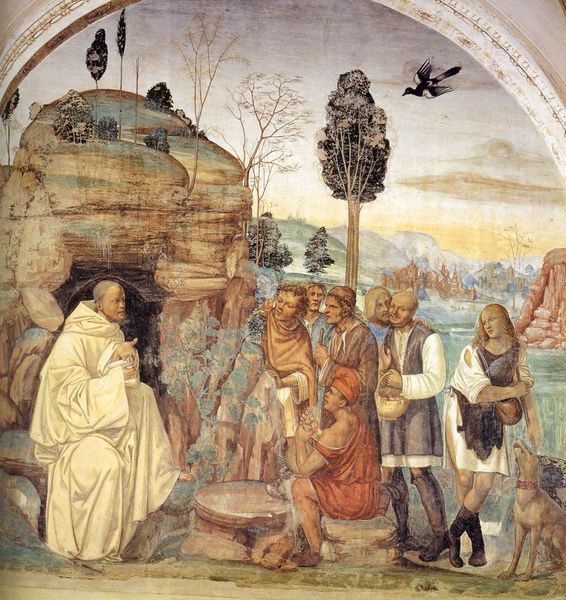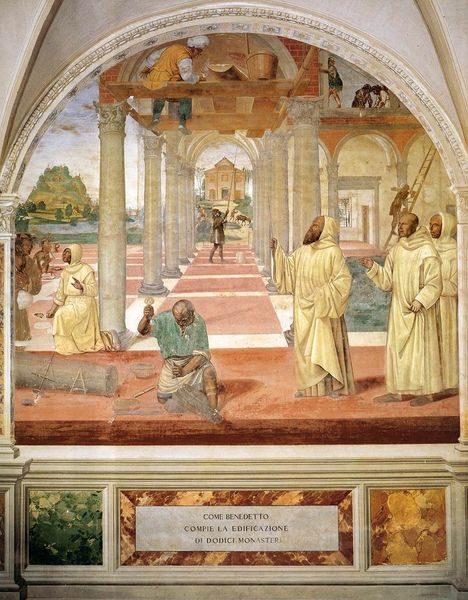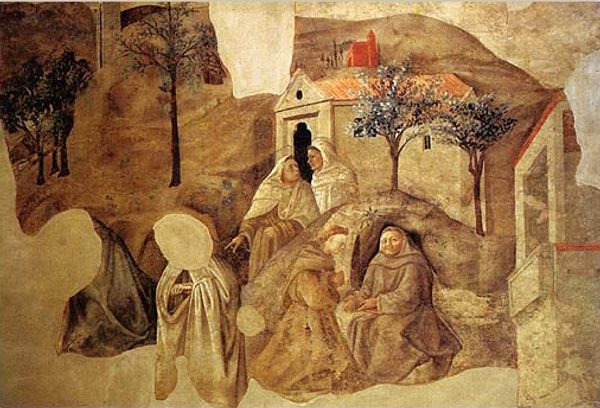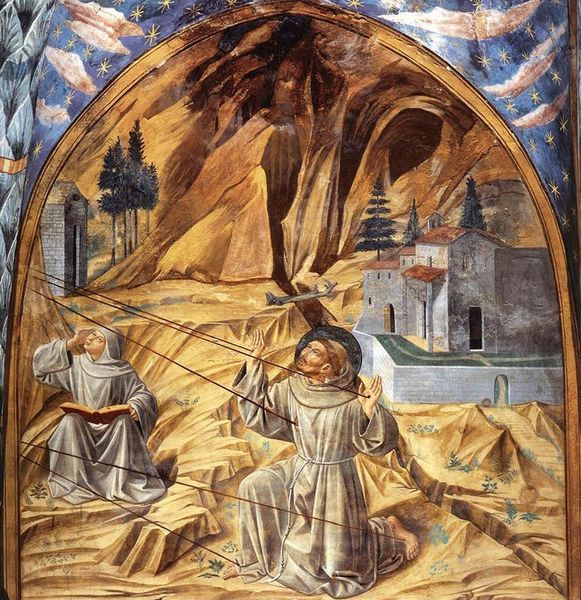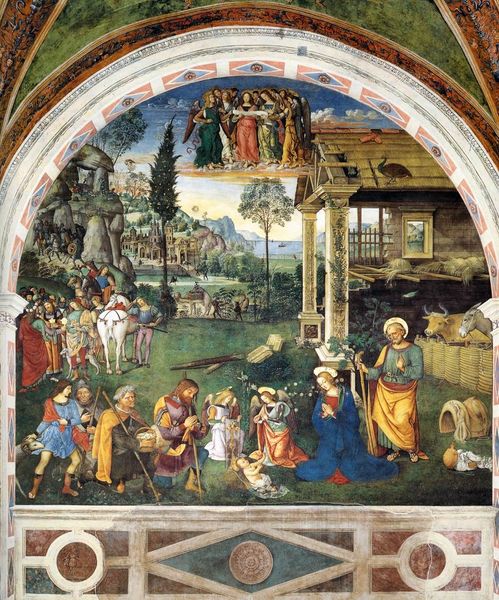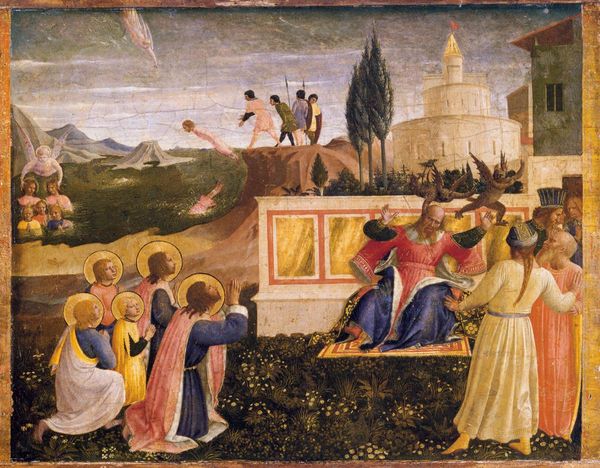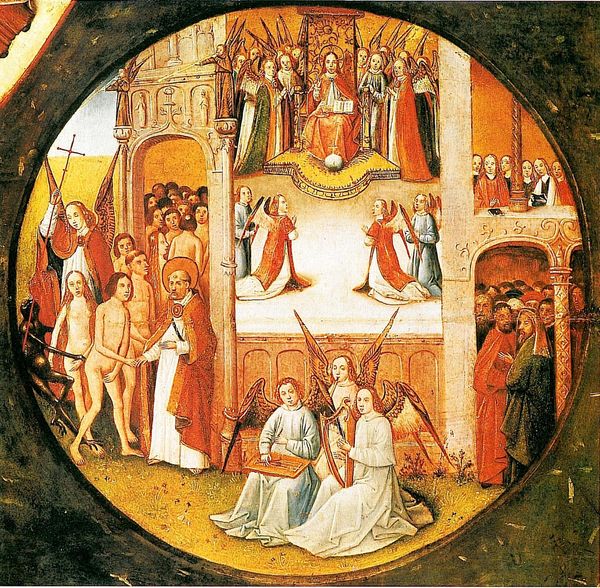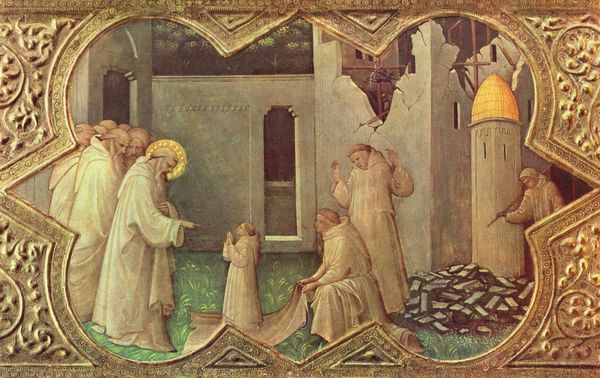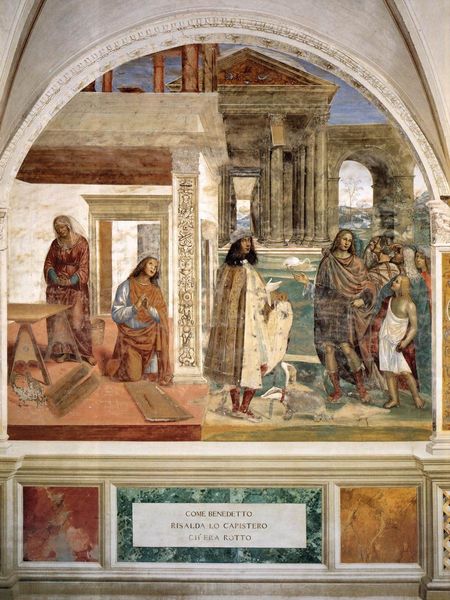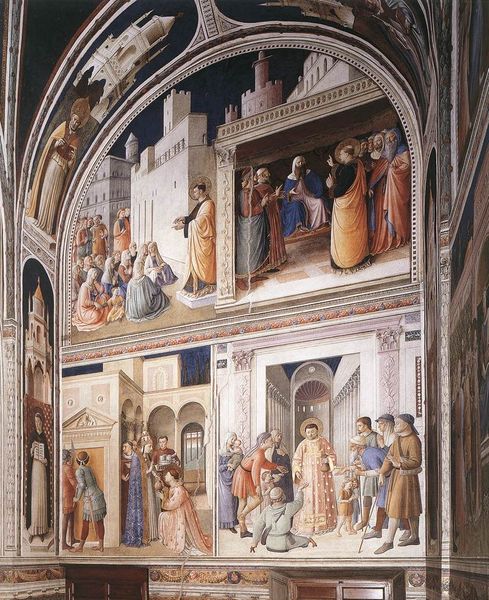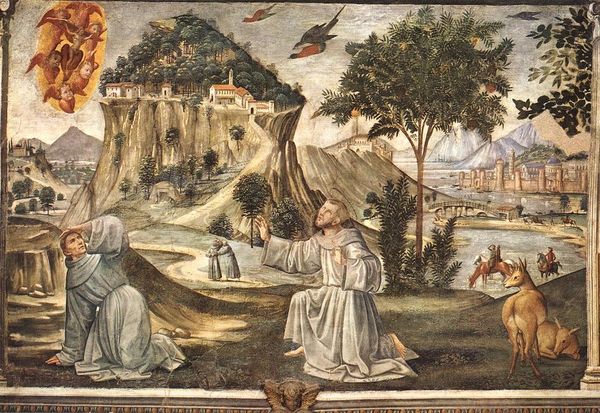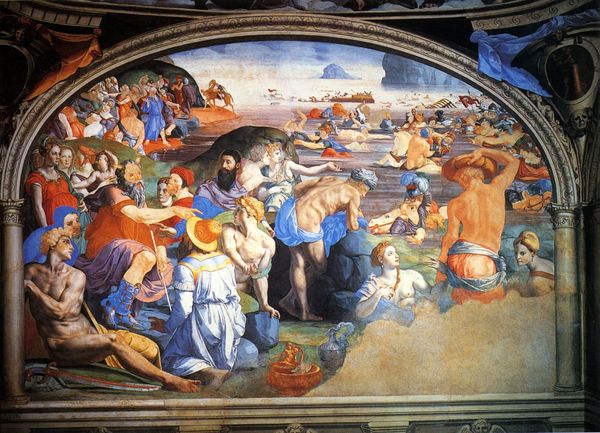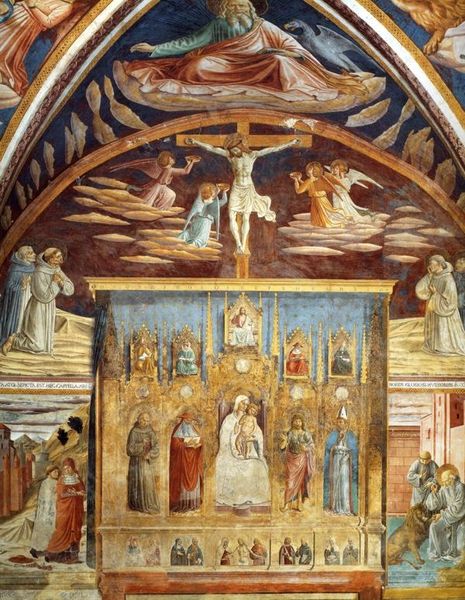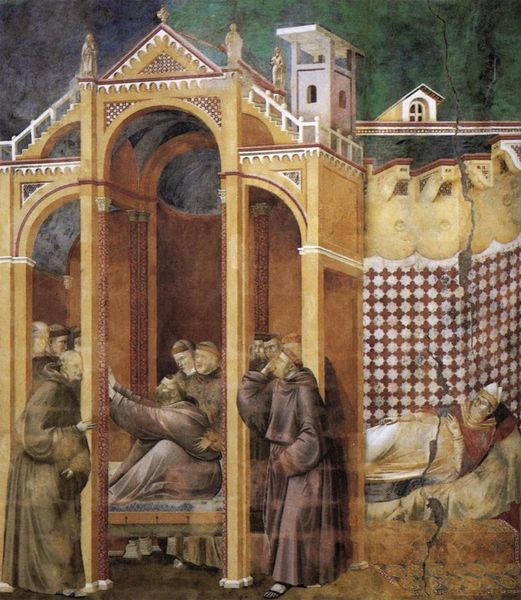
painting, oil-paint, fresco
#
narrative-art
#
painting
#
oil-paint
#
sculpture
#
landscape
#
holy-places
#
figuration
#
fresco
#
traditional architecture
#
oil painting
#
underpainting
#
painting painterly
#
history-painting
#
academic-art
#
italian-renaissance
#
watercolor
Copyright: Public domain
Il Sodoma painted this fresco, “Life of St Benedict, Scene 5. The Devil Destroys the Little Bell,” in Italy in the early 16th century. It depicts a scene from the life of St. Benedict, a key figure in the development of monasticism, an important social and religious institution. Here, Benedict is shown being provided for by a monk who lowers bread to him. The devil, in the upper left, is destroying the bell used to signal when the bread is ready. It’s a potent visual reminder of the challenges to faith that monastic orders faced. The setting, with its craggy rocks and serene landscape, emphasizes the isolation and spiritual focus of the monastic life. Sodoma's work, while devotional, reflects the period's broader cultural interest in classical landscapes and the human figure. Understanding the history of monastic orders and the visual language of religious art of the time is key to fully appreciating the painting’s meaning. We might look at theological texts, biographies of Benedict, and studies of monastic life to help shed light on the social conditions that shaped the artistic production of Sodoma's time. Ultimately, we see that art is deeply embedded in its social and institutional context.
Comments
No comments
Be the first to comment and join the conversation on the ultimate creative platform.
